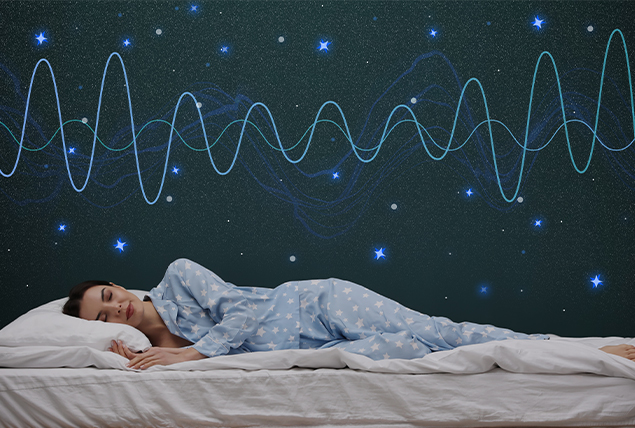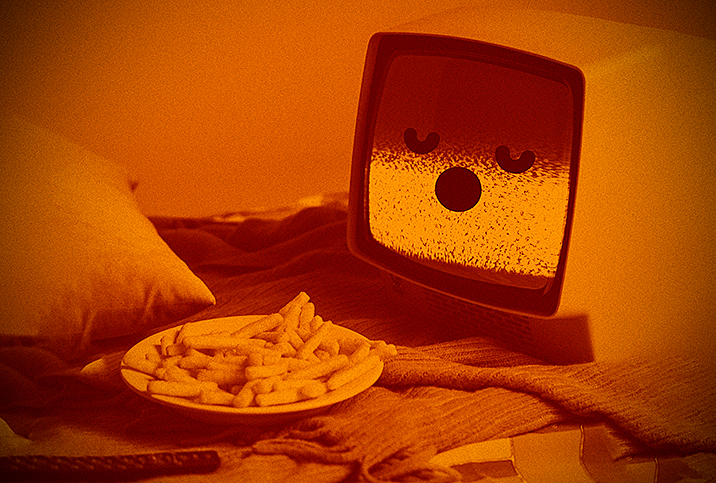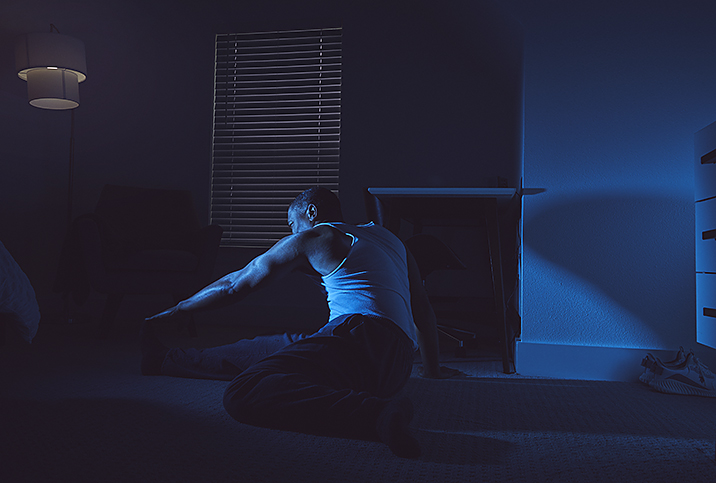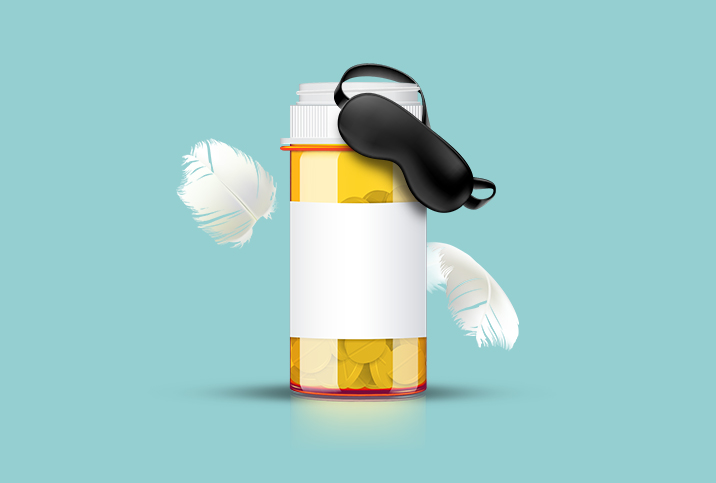Is it Possible, and Advisable to Reset Your Circadian Rhythm?

Are you an early bird or a night owl?
Some people wake up eager to start the day. They are full of energy and ideas, while others are sluggish and can't accomplish much until endless cups of coffee kick in. Many are at their best later in the day or even in the middle of the night. Everyone has different circadian rhythms.
These natural ebbs and flows of energy are governed by our internal clocks and circadian rhythms, which regulate how our bodies function. Given our busy work and personal schedules, our natural body clocks may be pushed aside by other pressures and responsibilities, where waking up later in the morning or going to bed earlier are not viable options.
It's important to understand how our circadian rhythms are integral to our lives, and the effect they have on our physical, mental, emotional and sexual health.
Circadian rhythms control our sleep-wake cycle
Our bodies work on a circadian rhythm cycle that affects us physically, mentally and behaviorally. Pending the time of day, we all have optimal times of alertness and energy versus downtime and sleep.
"Our circadian rhythms are largely genetically determined but are also influenced by environmental factors, particularly the light-and-dark cycle, and timing of physical activity and eating [schedules]," said Molly Atwood, Ph.D., an assistant professor of psychiatry and behavioral sciences at The Johns Hopkins School of Medicine in Baltimore. "Circadian rhythms are found in most—if not all—cells of the body in people and other mammals. They are synchronized within tissues and are coordinated by a central clock located in the suprachiasmatic nucleus (SCN) of the [brain's] hypothalamus."
If your lifestyle or daily schedule does not coincide with your natural rhythms, this will lead to your body's internal sleep-wake clock being out of sync with your environment.
"This will result in sleep disorders like insomnia when a person is needing to sleep but cannot fall asleep or is sleepy when alertness is required," she continued. "These situations cause significant distress and impairment of physical and cognitive functioning."
Different people have different cycles
"People experience regular fluctuations in physiological and intellectual functions in a circadian 24-hour cycle that affects their body temperature, hormone secretion, blood pressure, alertness and arousal, just to name a few," said Cynthia May, Ph.D., a professor of psychology at the College of Charleston in South Carolina. "Some people are morning types or larks who tend to wake early and feel physically and mentally at their peak."
Young children and adults older than 60 are more likely to be morning types. Evening types or night owls often peak later in the day. As a result, they perform best in the afternoon and evening. That doesn't necessarily remain consistent across a lifespan.
"Children usually shift from morningness to eveningness as they enter adolescence and young adulthood," May said. "And there are some people who show neither strong morningness nor eveningness, but rather are neutral types whose peak performance is often midday."
Circadian rhythms, hormones and sexual health
Hormone secretion fluctuates throughout a person's lifetime and during their 24-hour wake-sleep pattern, and the quality of a person's sleep is an important aspect of this process.
Studies indicate sleep disturbances impair the secretion of testosterone in men, leading to low levels of testosterone and sperm mobility issues. Women's production of estradiol, progesterone and other reproductive hormones is internally influenced by their circadian rhythm regulation.
Circadian rhythm dysfunction can also affect couples and individuals trying to conceive. If they are under the demands of frequent international travel schedules or have jobs that involve nightshift work, these disturbances can be a key factor in any fertility issues.
Melatonin, another important hormone that regulates our circadian rhythm, needs darkness for its production in our brains. Exposure to bright light sources while sleeping will block melatonin production, as does exposure to blue light from electronics just before bedtime. The lack of melatonin secretion can lead to erectile dysfunction (ED) in some men.
Women going through menopause already experience a disruption of melatonin production due to a lack of estrogen and progesterone. Further sleep disruptions only exacerbate the condition.
Melatonin replacements are available over the counter at pharmacies and this may be an option for some who are looking for ways to regulate their circadian rhythm.
Understand your best time of the day
"Circadian rhythms matter, especially for individuals who show strong morningness or eveningness tendencies," May said.
May and her research team will publish research in late 2023 concerning the effects of how a person's chronotype and synchrony can directly impact the outcomes of their work, activities and testing outcomes. It will highlight at least two reasons why people should be concerned about the synchrony between their chronotype and time of day with respect to their health.
"An accurate diagnosis of some medical conditions may depend upon the time at which the assessments take place, especially for conditions like Alzheimer's disease, autism, attention deficit disorder and intellectual disability," May said. "Performance on these assessments can be significantly worse at patients' asynchronous times, which not only affect diagnosis but also eligibility for clinical trials, therapeutic interventions and pharmacological supports.
"Evidence also indicates that the efficacy of certain medications and medical interventions are influenced by an individual's chronotype."
How to realign yourself and your natural rhythms
"It's optimal for people to stick to a sleep-wake schedule that fits their circadian rhythm," Atwood said.
This is something easily identified when we allow our body to sleep and wake without external constraints. Such as when we're on vacation.
"That means getting direct exposure to outdoor light shortly after waking up at our body's preferred time," she said. "As does making sure to dim the lights and limit exposure to electronics two hours before our body's preferred sleep time. Both are important for strengthening and regulating a circadian rhythm."
If a person has obligations that don't allow them to sleep at a time best for their body, it's possible to slightly shift one's internal rhythm using properly timed light exposure, physical activity and/or melatonin, according to Atwood.
"Sleep disorders are common, and these are a few effective strategies to help people cope and limit the impact of circadian dysregulation on their physical and mental health," she said. "The best thing to do is to ask your primary care doctor to refer you to a behavioral sleep medicine specialist, many of which can be found at hospitals like Johns Hopkins or other sleep centers."
For more ideas and information about circadian rhythms, and for help and advice concerning the management of rhythm dysfunctions and sleep disorders, check out organizations such as Sleep Education Organization and The Sleep Foundation.


















